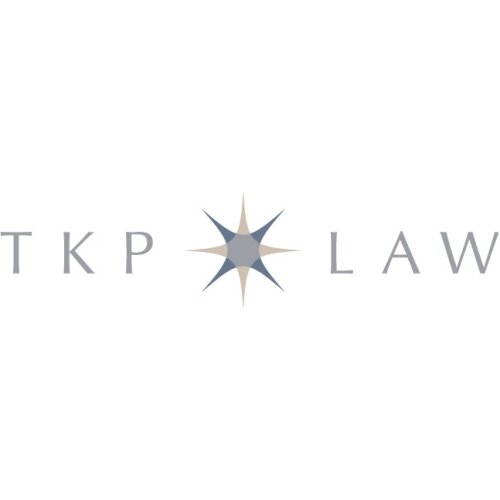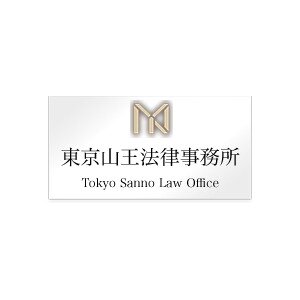Best Financial Services Regulation Lawyers in Japan
Share your needs with us, get contacted by law firms.
Free. Takes 2 min.
Or refine your search by selecting a city:
List of the best lawyers in Japan
About Financial Services Regulation Law in Japan
Japan's financial services regulation is governed by a robust set of laws designed to ensure the stability and integrity of its financial markets. The core legislative framework is provided by the Financial Instruments and Exchange Act, which regulates securities transactions, the conduct of financial services providers, and the protection of investors. Additionally, the Banking Act and Insurance Business Act govern banking operations and the insurance industry, respectively. These laws are enforced by the Financial Services Agency (FSA), which oversees compliance and aims to bolster consumer confidence in the financial sector.
Why You May Need a Lawyer
There are several situations where individuals or businesses might require legal assistance in the field of financial services regulation. Common scenarios include navigating complex regulations when launching new financial products, requiring guidance on compliance issues, facing investigation or enforcement actions by regulatory authorities, or seeking redress for issues like unauthorized transactions or financial fraud. Legal experts can help interpret the laws, provide strategic advice, and represent interests in negotiations or litigations.
Local Laws Overview
The financial services sector in Japan is shaped by various local laws aimed at safeguarding the market. Some key aspects include:
- Financial Instruments and Exchange Act: Requires proper conduct from financial service providers and mandates comprehensive disclosure to protect investors.
- The Banking Act: Sets requirements for the establishment and operation of banks, focusing on financial soundness and management standards.
- The Insurance Business Act: Supervises the activities of insurance companies to protect the interests of policyholders and ensure fair competition.
- Anti-Money Laundering Regulations: Enforce stringent rules to prevent money laundering and terrorism financing within the financial system.
- Consumer Protection Laws: Focus on ensuring transparency and fairness in financial product offerings to safeguard consumers.
Frequently Asked Questions
What is the main regulatory body overseeing financial services in Japan?
The Financial Services Agency (FSA) is the main regulatory body responsible for enforcing financial services regulations in Japan.
What types of financial services are regulated under Japanese law?
Services including securities trading, banking, insurance, and asset management are regulated under Japanese financial laws.
Do I need a license to offer financial services in Japan?
Yes, obtaining a license is typically required for offering financial services in Japan, with specific requirements varying depending on the type of service.
What are the penalties for violating financial regulations in Japan?
Penalties can include fines, suspension or revocation of licenses, and in some cases, criminal charges against individuals responsible.
How can investors be protected against fraud in Japan?
Investors are protected by laws mandating disclosure and transparency, and they can report fraud cases to the FSA or resolve disputes through designated arbitration centers.
Are there any compliance requirements for foreign financial institutions in Japan?
Yes, foreign institutions must adhere to Japanese laws and may need to establish a local branch or representative office to operate legally in Japan.
What is the role of anti-money laundering regulations?
The anti-money laundering regulations serve to prevent illegal financial activities and require institutions to verify customer identities and report suspicious transactions.
Can consumers dispute charges and seek refunds under Japanese law?
Yes, consumers have the right to dispute unauthorized charges and can seek recourse through their financial service provider or consumer protection agencies.
Are cryptocurrency transactions regulated in Japan?
Yes, cryptocurrency transactions are regulated under the Payment Services Act, requiring service providers to register with the FSA.
How can I resolve a dispute over financial services in Japan?
Disputes can be resolved through negotiations, mediation, or arbitration administered by the FSA or consumer protection bodies.
Additional Resources
Here are some resources and organizations that can provide valuable assistance:
- Financial Services Agency (FSA): The main regulatory body offers guidance and information on compliance and regulations.
- Japan Consumer Affairs Agency: Provides consumer protection services and dispute resolution mechanisms.
- Japanese Bankers Association: Offers resources for understanding banking regulations and practices.
- Japan Securities Dealers Association: Provides information on securities laws and investor protection.
- Center for Financial Industry Information Systems: Offers insights and educational materials on cybersecurity and IT regulations in financial services.
Next Steps
If you believe you need legal assistance in matters of financial services regulation, consider the following steps:
- Identify Your Legal Needs: Clarify the specific issue you’re facing, whether it’s related to compliance, enforcement, or dispute resolution.
- Consult with an Expert: Seek out attorneys or legal consultants specializing in financial services regulation in Japan.
- Prepare Documentation: Gather all relevant documents, contracts, and correspondence related to your issue for your consultation.
- Explore Your Options: Your legal advisor will help you understand the potential legal strategies and outcomes available to you.
- Act Promptly: Financial regulatory matters can be time-sensitive, so it’s important to proceed quickly once you’ve decided on a course of action.
Lawzana helps you find the best lawyers and law firms in Japan through a curated and pre-screened list of qualified legal professionals. Our platform offers rankings and detailed profiles of attorneys and law firms, allowing you to compare based on practice areas, including Financial Services Regulation, experience, and client feedback.
Each profile includes a description of the firm's areas of practice, client reviews, team members and partners, year of establishment, spoken languages, office locations, contact information, social media presence, and any published articles or resources. Most firms on our platform speak English and are experienced in both local and international legal matters.
Get a quote from top-rated law firms in Japan — quickly, securely, and without unnecessary hassle.
Disclaimer:
The information provided on this page is for general informational purposes only and does not constitute legal advice. While we strive to ensure the accuracy and relevance of the content, legal information may change over time, and interpretations of the law can vary. You should always consult with a qualified legal professional for advice specific to your situation.
We disclaim all liability for actions taken or not taken based on the content of this page. If you believe any information is incorrect or outdated, please contact us, and we will review and update it where appropriate.
Browse financial services regulation law firms by city in Japan
Refine your search by selecting a city.

















